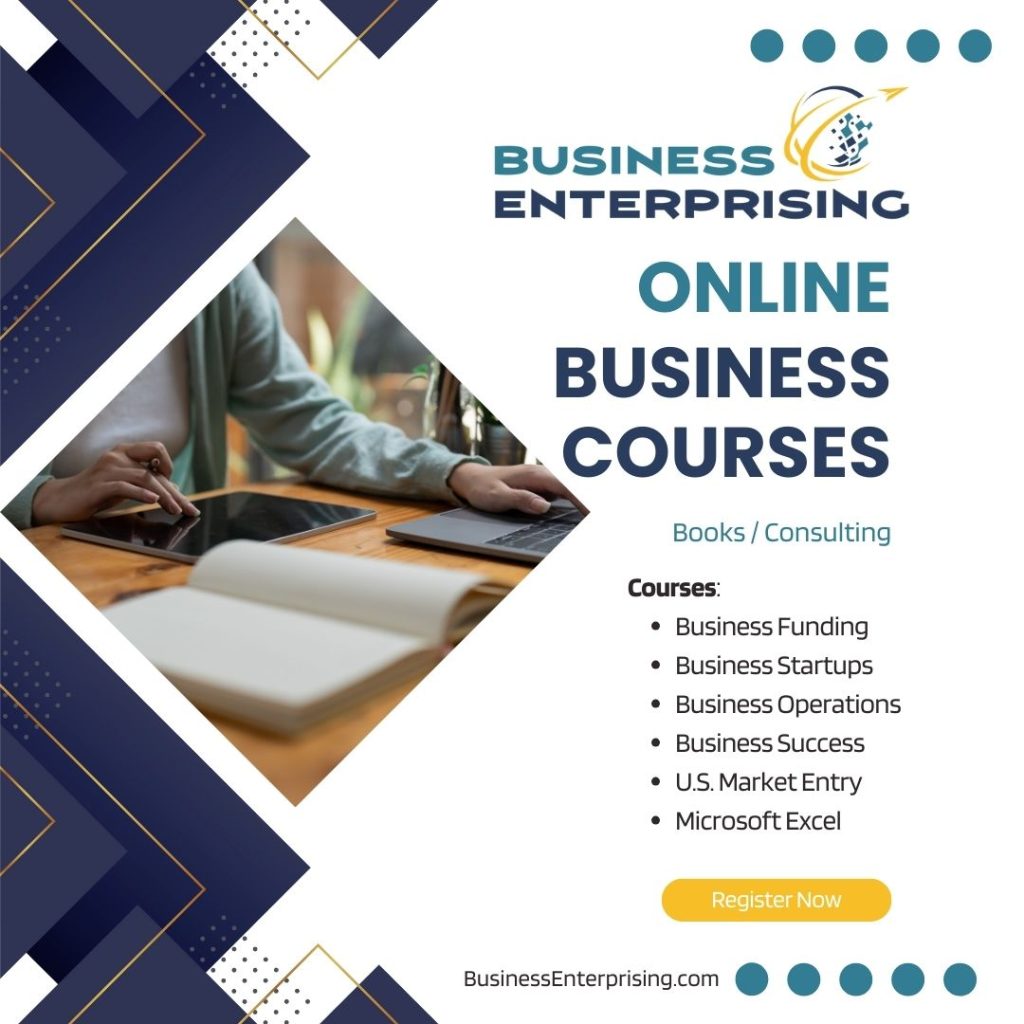 Online business education has become a popular choice for professionals seeking flexibility in their learning experience. The effectiveness of online business education lies in its ability to offer high-quality education while accommodating your schedule. With the rise of digital tools and interactive platforms, online programs provide access to top-tier business knowledge from anywhere. You can balance work, life, and studies without sacrificing quality or career advancement. As more professionals turn to online education, it’s important to explore its benefits, challenges, and long-term value in supporting your career growth.
Online business education has become a popular choice for professionals seeking flexibility in their learning experience. The effectiveness of online business education lies in its ability to offer high-quality education while accommodating your schedule. With the rise of digital tools and interactive platforms, online programs provide access to top-tier business knowledge from anywhere. You can balance work, life, and studies without sacrificing quality or career advancement. As more professionals turn to online education, it’s important to explore its benefits, challenges, and long-term value in supporting your career growth.
Benefits of Online Business Education
Online business education offers significant benefits, particularly for professionals and students juggling work and personal commitments. One of the primary advantages is flexibility. You can access course materials and complete assignments on your schedule, making it easier to balance work and studies. This adaptability allows you to advance your education without putting your career on hold.
Another major benefit is accessibility. With online programs, you aren’t limited by geographic location. Whether you’re in a large city or a rural area, you can enroll in top business programs worldwide. This opens up a broader range of educational opportunities, allowing you to choose the program that best fits your goals.
Convenience is also key to the effectiveness of online business education. You can study from anywhere, eliminating the need to commute or rearrange your day. This makes it easier to stay consistent with your studies, even when managing a busy schedule. By offering this flexibility and convenience, online education is helping more people pursue advanced business knowledge and achieve career growth.
Comparing Online and Traditional Business Education
When comparing online and traditional business education, differences in learning styles and interaction become clear. In traditional classrooms, learning often relies on face-to-face discussions and lectures. This setting fosters immediate interaction with professors and peers, encouraging dynamic conversations. On the other hand, online learning tends to offer more independent, self-paced study. You engage with materials at your convenience, which can lead to a more flexible but solitary learning experience.
Another key difference lies in course delivery. Traditional programs typically follow a structured schedule with fixed times for classes and exams. In contrast, online courses allow you to access content from anywhere, at any time. While this offers greater flexibility, it requires strong time management skills to stay on track. The effectiveness of online business education largely depends on your ability to manage these flexible schedules while staying engaged.
Interaction also varies between formats. In-person classes promote real-time engagement and networking. However, online education provides digital forums and group projects, which still offer opportunities for collaboration. These platforms allow you to connect with peers globally, offering diverse perspectives. Despite the differences in style and delivery, both methods can be effective depending on your learning preferences and lifestyle.
Technological Advancements in Online Business Education
Technological advancements have significantly improved the effectiveness of online business education. Digital tools such as video conferencing, interactive simulations, and learning management systems allow for more engaging and flexible learning experiences. These tools enable you to attend virtual lectures, collaborate with peers, and access resources at any time, making education more accessible and personalized.
Platforms like Zoom, Microsoft Teams, and specialized education portals have become essential in online learning. They create opportunities for live interaction with professors and students through virtual classrooms. Additionally, discussion boards and group chats enhance communication, helping you engage with the course material more effectively. These platforms mimic the classroom experience while offering the flexibility of learning remotely.
Interactive technologies also play a key role in online business education. Simulations, case studies, and real-time data analysis tools help you apply what you’ve learned in practical ways. This hands-on approach makes learning more dynamic and relevant to real-world business challenges. As a result, the effectiveness of online business education has improved, allowing students to gain meaningful skills that translate into their careers. Through these technological advancements, online education continues to evolve and meet the needs of modern learners.
Accreditation and Quality Assurance in Online Business Programs
When considering online business education, evaluating the program’s accreditation and quality is essential. Accreditation ensures that a program meets established educational standards, giving you confidence in the education you receive. Look for programs accredited by reputable organizations such as AACSB, EQUIS, or ACBSP. These accreditations signal that the program has been thoroughly reviewed and meets high academic and professional standards.
Quality assurance in online programs also involves evaluating the curriculum and faculty. A credible online business program should have a comprehensive and up-to-date curriculum, aligned with current business trends. Review the qualifications of the instructors to ensure they have relevant industry experience and academic credentials. This helps determine the effectiveness of online business education in preparing you for real-world challenges.
Additionally, consider the program’s reputation and student support services. Reading reviews from current and former students can provide insight into their experiences. Programs with strong support systems, such as academic advising, career services, and accessible faculty, often offer a better overall learning experience. By carefully evaluating these factors, you can be confident in choosing an online business program that delivers high-quality education.
Impact of Online Business Education on Career Growth
Online business education has a significant impact on career growth, especially for working professionals. These programs offer the flexibility to acquire new skills without interrupting your current job. You can apply what you learn immediately, improving your performance at work. This balance between education and career allows you to grow professionally while keeping your job responsibilities intact.
The effectiveness of online business education also lies in its ability to expand your skill set. From leadership to strategic thinking, online programs cover a wide range of topics that enhance your expertise. This continuous development is important for career advancement, as employers value professionals who actively seek to improve their knowledge. Online courses give you the opportunity to stay current in your field.
Moreover, online business education opens doors to new career opportunities. By completing these programs, you may qualify for higher-level roles or move into new industries. Employers recognize the commitment required to succeed in online programs, which can make you stand out in the job market. Overall, the flexibility and focus of online business education provide a valuable pathway for career growth.
Challenges and Solutions in Online Business Education
Online business education comes with its own set of challenges, including student engagement, time management, and networking. Without the traditional classroom environment, staying engaged can be difficult. However, using interactive platforms and participating in discussion forums can help you stay connected with the material and your peers. These digital tools enhance the effectiveness of online business education by keeping you actively involved in the learning process.
Time management is another common barrier for online students, especially for those balancing work and family responsibilities. Setting a clear schedule and prioritizing tasks can make managing coursework easier. Breaking down larger projects into smaller, manageable tasks helps you stay on track without feeling overwhelmed. Effective time management is essential for making the most of your online learning experience.
Networking can also be a challenge in online programs, as in-person interactions are limited. However, many programs offer virtual networking events, group projects, and online communities. Engaging with your peers and instructors through these channels can build meaningful professional connections. By addressing these challenges with the right strategies, you can enhance the effectiveness of online business education and maximize your learning experience.
Conclusion
In conclusion, the effectiveness of online business education lies in its flexibility, accessibility, and ability to meet the needs of working professionals. Despite challenges like time management and student engagement, online programs provide valuable opportunities for skill development and career growth. By leveraging digital tools and maintaining an organized schedule, you can overcome these obstacles and make the most of your online learning experience. With the right strategies and commitment, online business education can be a powerful tool for advancing your career and achieving your professional goals.


